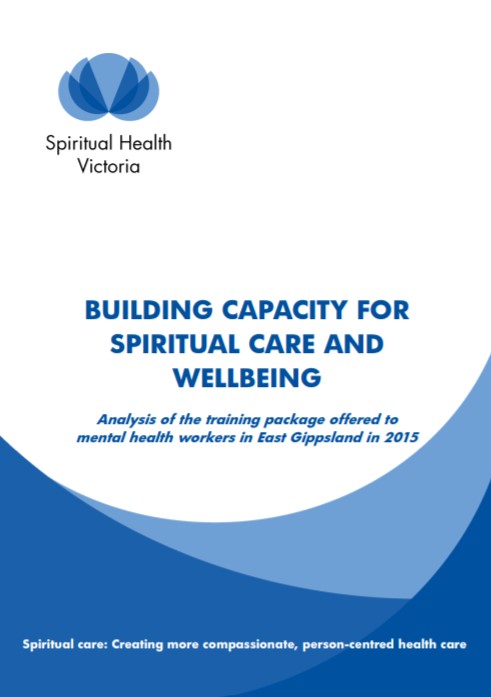In the realm of spiritual development, the concept of capacity building emerges as a pivotal theme within the Bahá’í teachings. This concept resonates deeply with the idea that individuals possess the incredible potential to cultivate their inner spiritual resources. By enhancing these capacities, individuals not only elevate their personal lives but also contribute to the collective well-being of society. In this exploration, we delve into the nuanced dimensions of capacity building as espoused in the Bahá’í faith, illuminating the pathways to creating profound inner spiritual resources.
Understanding Capacity Building
Capacity building transcends mere skill acquisition; it encompasses fostering resilience, nurturing intrinsic qualities, and developing a profound connection to the divine. Within the Bahá’í perspective, this undertaking is not merely a personal endeavor but a communal responsibility. The teachings underscore that the individual’s spiritual development is inextricably linked to the progress of humanity at large. As individuals cultivate their capacities, they contribute to a collective spiritual upliftment that transcends the confines of individual experience.
The Role of Spiritual Education
Central to the Bahá’í approach to capacity building is the emphasis on spiritual education. Engaging with spiritual texts, participating in consultative dialogues, and embarking on learning programs serve as conduits through which individuals can access the wealth of knowledge that informs their spiritual journey. The transformative power of spiritual education lies in its ability to deepen understanding and broaden perspectives. By engaging with these resources, individuals not only sharpen their intellectual faculties but also enhance their spiritual perceptivity.
This educational journey is not solely individualistic. The Bahá’í teachings advocate for collective learning experiences that foster a sense of unity and shared purpose. When individuals come together to explore spiritual concepts, they amplify their understanding, creating a resonant energy that enhances the overall capacity of the community. In this collaborative learning environment, diverse perspectives enrich the discourse, propelling collective growth.
Practicing Reflection and Contemplation
Another vital avenue for nurturing inner spiritual resources is through reflection and contemplation. The Bahá’í teachings encourage individuals to engage in regular introspection, allowing for a profound alignment between thought and action. This reflective practice cultivates mindfulness, enabling one to discern the spiritual lessons embedded in daily experiences. Contemplation serves as a bridge, connecting the intellect with the heart, fostering a sense of inner peace and clarity.
To engage effectively in reflection, individuals might consider creating a dedicated space for quietude—an environment that fosters serenity and focus. Within this sanctuary, one can meditate upon spiritual writings, ponder their implications, and explore personal experiences through a spiritual lens. This deliberate approach to reflection unveils the latent spiritual insights that lie entwined within the fabric of existence, thereby expanding one’s spiritual capacity.
Embracing Service to Humanity
The act of service is a cornerstone in the Bahá’í philosophy, providing a robust framework for capacity building. Engaging in acts of service not only facilitates the cultivation of virtues such as compassion and altruism but also fosters a sense of purpose and belonging. By contributing to the well-being of others, individuals transcend self-centered concerns, allowing their spiritual capacities to flourish. This selfless engagement manifests as an inner transformation—an expanded awareness that bridges personal development with communal welfare.
Service can take various forms, each contributing uniquely to personal and societal upliftment. Whether through direct action in humanitarian efforts or fostering an environment of kindness within one’s own community, each act of service nurtures the underlying spiritual faculties. As individuals become attuned to the needs of those around them, they cultivate empathy and wisdom—two critical dimensions of spiritual capacity.
Cultivating Unity in Diversity
The Bahá’í teachings poignantly stress that the diversity of humanity is a divine asset, enriching the collective experience. In the journey of capacity building, individuals are encouraged to embrace unity in diversity, recognizing the myriad expressions of the human spirit. This recognition not only cultivates a sense of belonging but also enhances spiritual capacity by embracing the multitude of perspectives that contribute to a fuller understanding of truth.
Engaging with those from diverse backgrounds, whether through dialogue, art, or collaborative projects, can lead to a profound expansion of one’s own spiritual horizon. This engagement invites individuals to confront their biases, challenge preconceived notions, and deepen their appreciation for the shared human experience. In doing so, they foster a spirit of inclusivity, which is indispensable for personal and collective spiritual advancement.
Fostering an Environment of Support
Creating an ecosystem that nurtures spiritual growth is imperative for effective capacity building. The Bahá’í community emphasizes the importance of support systems, emphasizing that individuals thrive in environments characterized by love, trust, and mutual accountability. Establishing such a supportive milieu enables individuals to navigate their spiritual journeys with greater confidence and resilience.
This supportive environment can manifest through the formation of study circles, community gatherings, or mentorship programs. By fostering relationships grounded in respect and understanding, individuals can share insights, challenges, and triumphs, reinforcing their collective capacity for spiritual development. Acknowledging and celebrating progress, whether large or small, becomes an integral part of this nurturing environment.
Conclusion: A Lifelong Journey of Capacity Building
The pursuit of capacity building through the framework of Bahá’í teachings is both a profound personal odyssey and a collaborative endeavor. By embracing spiritual education, engaging in reflection, serving humanity, celebrating diversity, and fostering supportive environments, individuals can unlock and expand their inner spiritual resources. This journey of exploration and self-discovery is intertwined with the overarching narrative of humanity’s evolution toward unity and peace. As individuals commit to this lifelong journey, they not only enrich their own spiritual landscapes but also contribute meaningfully to the flourishing of society as a whole.
